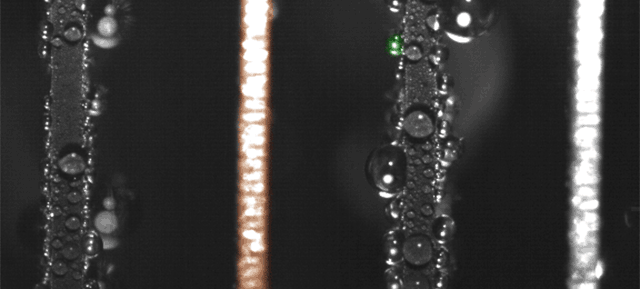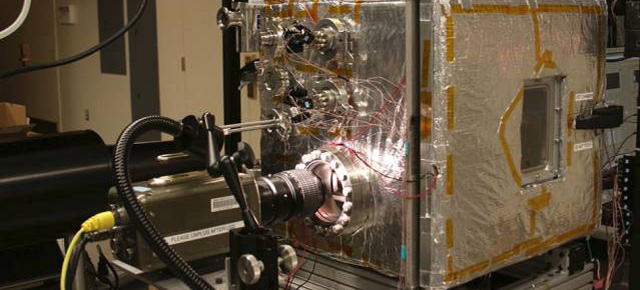This silver cube looks like it belongs on a spaceship — but actually it’s way more exciting than that. In fact, it can create electricity from humidity, as water condenses on its internal surfaces.
It may sound implausible, but in fact it exploits the physics of a finding made at MIT last year: when water droplets spontaneously jump away from a superhydrophobic surface while they condense, they can gain electric charge in the process. This machine harnesses that charge to create electricity.
The device uses a series of copper plates: half plain and hydrophilic (water-attracting), half coated in copper oxide, which is superhydrophobic (water-replling). As humid air condenses, it jumps from the latter to the former, creating charge in the process. So far, the amounts of power recovered from the system have been small, though — just 15 picowatts per square centimetre of metal plate.

Still, the researchers behind it reckon it can easily achieve 1 microwatt per square centimetre. Using those numbers, a cubic device 50cm long on each side could fully charge a mobile phone in about 12 hours. Not setting the world on fire, but in remote areas where there’s little means of producing power, that could be a welcome shot of electricity. The work is published in Applied Physics Letters.
Future devices could, apparently, be made from any conductive metal — aluminium, say — and would operate passively: there are no moving parts at all. In fact, all that’s required is the box, humidity, and some source of cooler temperature to help condense the water in the air, which could be a cave or river. In other words, this is a box that harnesses electricity from its humble surroundings. See, more exciting than that spaceship. [Applied Physics Letters via MIT]
